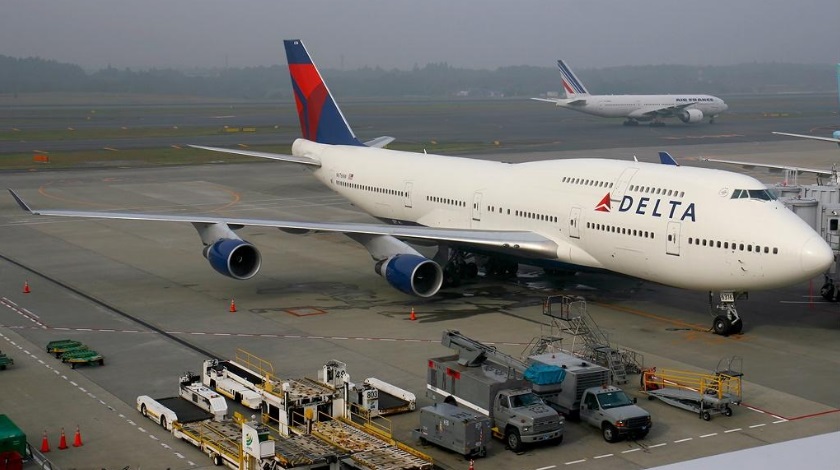Photo: seekingalpha.com
Reading Time: 3 minutesBy the time the Thanksgiving holiday wraps up next Monday, Delta is expected to have flown more than 4.85 million people — many infrequent flyers — to visit loved ones at hundreds of destinations around the world. The airline will fly more than 46,000 mainline and Delta Connection flights from Saturday, Nov. 18 through Monday, Nov. 27.
Once again, the Sunday after Thanksgiving is expected to be the busiest of the weeklong period with nearly 5,800 departures and more than 600,000 customers flying that day.
Delta’s holiday planning began several months ago as the airline kicked into high gear its efforts to keep customers moving through the travel stream. At major hub airports across the system, Delta has increased staffing on peak days to ease the check-in process, including deploying the airline’s volunteer Peach Corps in Atlanta, something Delta has done for the last several years.
Meanwhile, Delta’s dedicated team of expert meteorologists have been keeping a close eye on any possible trouble spots, though as of Tuesday evening, the forecast through the holiday weekend looks fairly quiet. No major storms are expected across the continental U.S. through the weekend.
For more tips this holiday season, see Delta’s lineup of customer innovations you can expect on your next flight and pack-your-bag essentials.
If you’re planning to bring gifts this holiday season, keep these helpful tips in mind:
Aerosols:
Aerosols in checked baggage must be protected by a cap or other suitable means to prevent inadvertent release and cannot exceed 2 kg (70 ounces) by mass or 2 L (68 fluid ounces) by volume and the capacity of each container may not exceed 0.5 kg (18 ounces) by mass or 500 ml (17 fluid ounces) by volume.
Lighters:
Under Department of Transportation rules, when traveling on a commercial airline, one lighter that uses a flammable gas (butane) or that uses a flammable liquid that is absorbed in a lining (Zippo-type) is permitted.
The following restrictions apply:
- For safety reasons, permitted lighters must be in carry-on or on your person (in your pocket), not in checked baggage.
- Under TSA regulations, torch lighters (a.k.a. jet lighters, blue flame lighters, cigar lighters) are forbidden in carry-on or on your person. TSA rules also prohibit lighters that look like guns or other weapons.
- Containers of lighter fluid or gas (butane) are forbidden in carry-on and checked baggage.
- Micro torches, chef torches, utility torches, etc., are not considered lighters and are forbidden in carry-on and checked baggage. Fuel for such torches is also forbidden in carry-on and checked baggage
Lithium Batteries:
Traveling with consumer electronic and medical devices containing lithium cells or batteries (e.g. watches, calculators, cameras, cell phones, laptops, camcorders, hearing aids, etc.) is allowed onboard as carry-on. Spare lithium batteries are allowed as carry-on only, and must be individually protected to prevent short circuits.
Tips to properly transport spare lithium batteries:
- Pack spare batteries in carry-on baggage.
- Keep spare batteries in the original retail packaging to prevent unintentional activation or short-circuiting.
- If original packaging is not available, effectively insulate battery terminals by isolating spare batteries from contact with other batteries and/or metal.
- Specifically, place each battery in its own protective case, plastic bag or package, or place tape across the battery’s contacts to isolate terminals.
- Take steps to prevent crushing, puncturing, or putting a high degree of pressure on the battery, as this can cause an internal short circuit, resulting in overheating.
Passengers are permitted to travel with lithium ion batteries that contain a maximum of 160 watt hours per battery. Any lithium ion battery containing more than 160 watt hours is prohibited from carriage on all passenger aircraft. Lithium ion batteries installed in a personal electronic device can be transported as checked or carry-on baggage. Lithium ion batteries not installed in a device (spares) must be in carry-on baggage and no more than two (2) spares between 100 and 160 watt hours are allowed.

